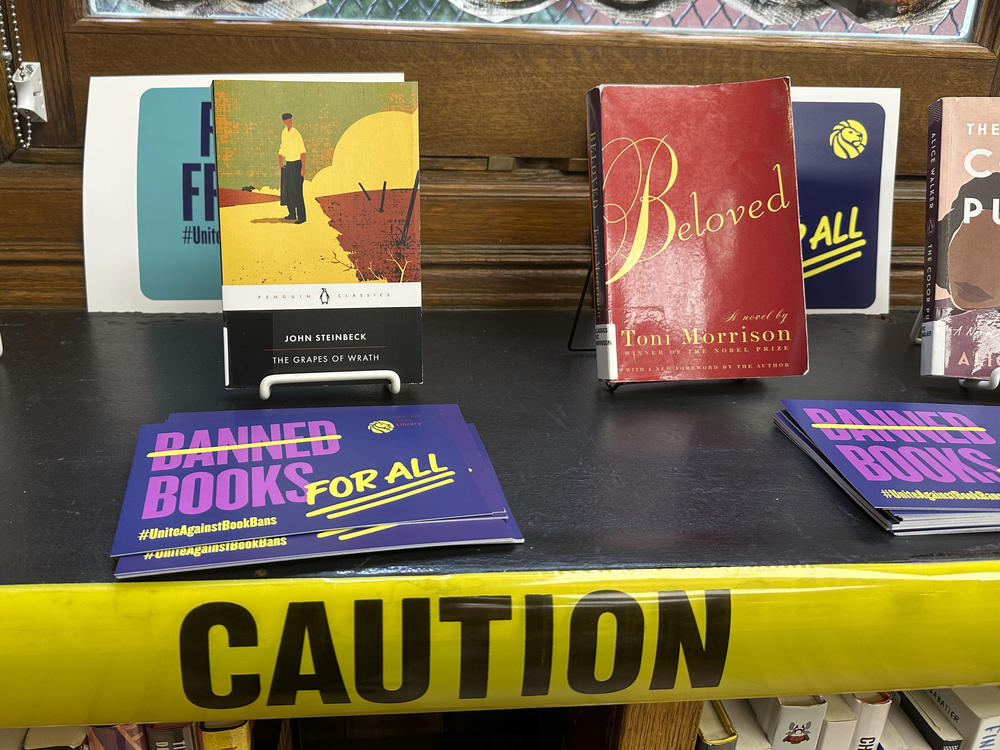Section Branding
Header Content
To fight so-called book bans, some states are threatening to withhold funding
Primary Content
On Jan. 1 , Illinois' new law meant to slow the rapid rise of books being challenged or pulled from library shelves goes into effect. And librarians across the country are watching to see if a similar law would work in their state – particularly when it comes to threatening funding for libraries.
The Illinois law states that in order to be eligible for state grants, a library or library system must adopt the American Library Association's Library Bill of Rights, which says:
"Libraries should provide materials and information presenting all points of view on current and historical issues. Materials should not be proscribed or removed because of partisan or doctrinal disapproval."
Last fiscal year, Illinois awarded more than 1,400 library grants totaling about $62 million, according to Illinois Secretary of State Alexi Giannoulias, whose office will oversee the program.
"We're not telling any library or any school district or library district what books they have to have in circulation," Giannoulias says. "What this legislation does is say that we want to trust our librarians who have the expertise, the education, the experience to determine what books should continue to be in circulation."
According to the American Library Association, nearly 2,000 unique titles were challenged in libraries across the country between Jan. 1 and Aug. 31. That's a 20 percent increase over the same time last year. And most of those challenges were for books by or about queer people or people of color.
Emily Knox, an associate professor at the School of Information Sciences at the University of Illinois Urbana-Champaign, says the Illinois law is a good first step towards protecting libraries and librarians. But worries that there might be library boards willing to forego the money. "But there is no other leverage that the state has over any libraries."
Lawmakers in a handful of other states – such as New York and Pennsylvania – have introduced similar bills requiring libraries to abide by the ALA Library Bill of Rights or risk losing certain funding.
Deborah Caldwell-Stone is the director of the ALA's Office of Intellectual Freedom, and is wary of having library collection policies so closely intertwined with state money. "Because it says that whoever holds the funds dictates what we can read," she says. "And we would prefer a system that upholds the professional discretion of librarians and [isolates] it from political pressure."
In New Jersey, policy writers are still hashing it out over this very question of tying so-called anti-book ban laws to state funding. Mary Moyer Stubbs is the legislative consultant for the New Jersey Association of School Librarians, which helped draft a version of the New Jersey law without those consequences.
"Libraries all weed materials for a variety of different reasons," she says. Books get old. They get worn out. And even if a book is removed for these benign reasons, it could be seen as political. "And that would be a cause for withholding funding."
And so she and her colleagues will be watching closely to see how the law plays out in Illinois once it goes into effect.
Copyright 2023 NPR. To see more, visit https://www.npr.org.

